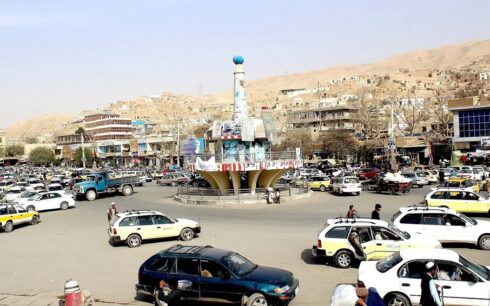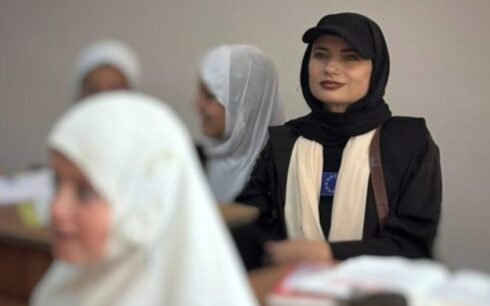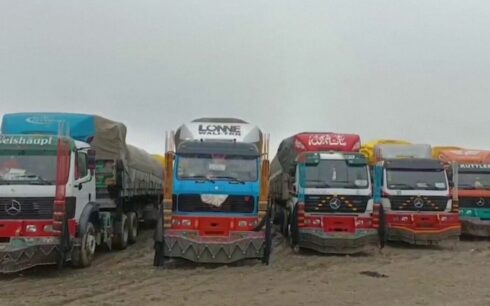Canada’s Prime Minister Justin Trudeau said Friday that his country needs to find a way to help the people of Afghanistan without “supporting and funding the terrorist organization that is their government right now.”
Speaking to reporters in Vancouver, he said the situation of not being able to provide help directly is “complex”. This is due to Canada’s strict anti-terrorist laws.
Trudeau stated: “We have a number of allies who’ve moved forward on it, and we are looking to do the same,” adding that this must be done “in a way that doesn’t support or embolden the (Taliban) government that is busy oppressing and doing violence” to Afghans.
Cabinet ministers refuse to testify
Trudeau’s comments come after three Liberal cabinet ministers declined requests to testify in the Senate, which begins hearings on Monday, as part of a probe into why Canada still won’t allow humanitarian workers to help in Afghanistan.
Under Canadian law, the country’s humanitarian agencies are prohibited from paying people in Afghanistan or buying goods with Canadian money, because any taxes leveled by the Taliban could count as them supporting a terrorist group.
Canada’s aid organizations have been calling on the federal government to exempt their on-the-ground work in Afghanistan from the anti-terror laws, warning that Ottawa’s current policies are preventing them from delivering crucial assistance to people in desperate need.
Earlier this year, the organizations launched an online campaign saying Canada is denying life-saving aid. The campaign stated that while Canada’s allies have carved out humanitarian exceptions to their sanctions regimes and criminal law, Canada “has yet to provide an avenue for humanitarian agencies to continue their operations in Afghanistan.”
In August, Amy Avis, general counsel at the Canadian Red Cross, said there are two sets of barriers: the sanctions regime and the anti-terrorism provisions. Taken together, neither have an exemption for humanitarian assistance, and so the Canadian Red Cross is unable to do its work in Afghanistan.
“Every Canadian aid organization is blocked, but all of our international partners are able to work in the country. And so Canadian aid organizations can’t provide any funding even through our international partners,” she said.
Misinterpreting laws
However, speaking to Canada’s CBC, Kent Roach, a professor at the University of Toronto’s faculty of law, stated that Ottawa is misinterpreting its own laws – given that the federal government has admitted that the Taliban are governing Afghanistan and is in regular talks with the regime.
Roach is one of six advocates and lawyers set to appear at the Senate committee hearing on Monday. Others include representatives of the Canadian Red Cross, World Vision Canada and groups serving Afghan immigrant women.
The committee invited Public Safety Minister Marco Mendicino, Justice Minister David Lametti and International Development Minister Harjit Sajjan to testify at hearings scheduled for the evenings of December 5 and 12. But all three ministers declined to appear.
This comes amid growing concern for the people of Afghanistan as the harsh winter sets in. Already, six million people are formally at risk of famine.
“They will have little food, little fuel — and they will struggle to keep their children warm and fed,” Joyce Msuya, the UN’s deputy emergency relief coordinator, told a UN Security Council meeting last month.
But, despite wanting to help, groups such as World Vision Canada, are not even allowed to raise funds specifically for programs in Afghanistan.
Earlier this year, World Vision Canada said in a statement that “right now, people here in Canada aren’t able to donate to the global relief effort in Afghanistan – although they know and care about the crisis.
“We can’t help the Afghan people in the way we would like. Our Criminal Code makes it impossible,” the organization stated.
World Vision Canada stated the country’s “anti-terror legislation is very tight and provides no exemption for life-saving humanitarian work. The law was written to prevent funds – knowingly or unknowingly – from ending up in the hands of terrorist entities.”
“In Afghanistan’s time of deepest need, Canadians want to help,” said Michael Messenger, president of World Vision Canada. “Our government needs to do everything it can to allow humanitarian aid to flow.”





